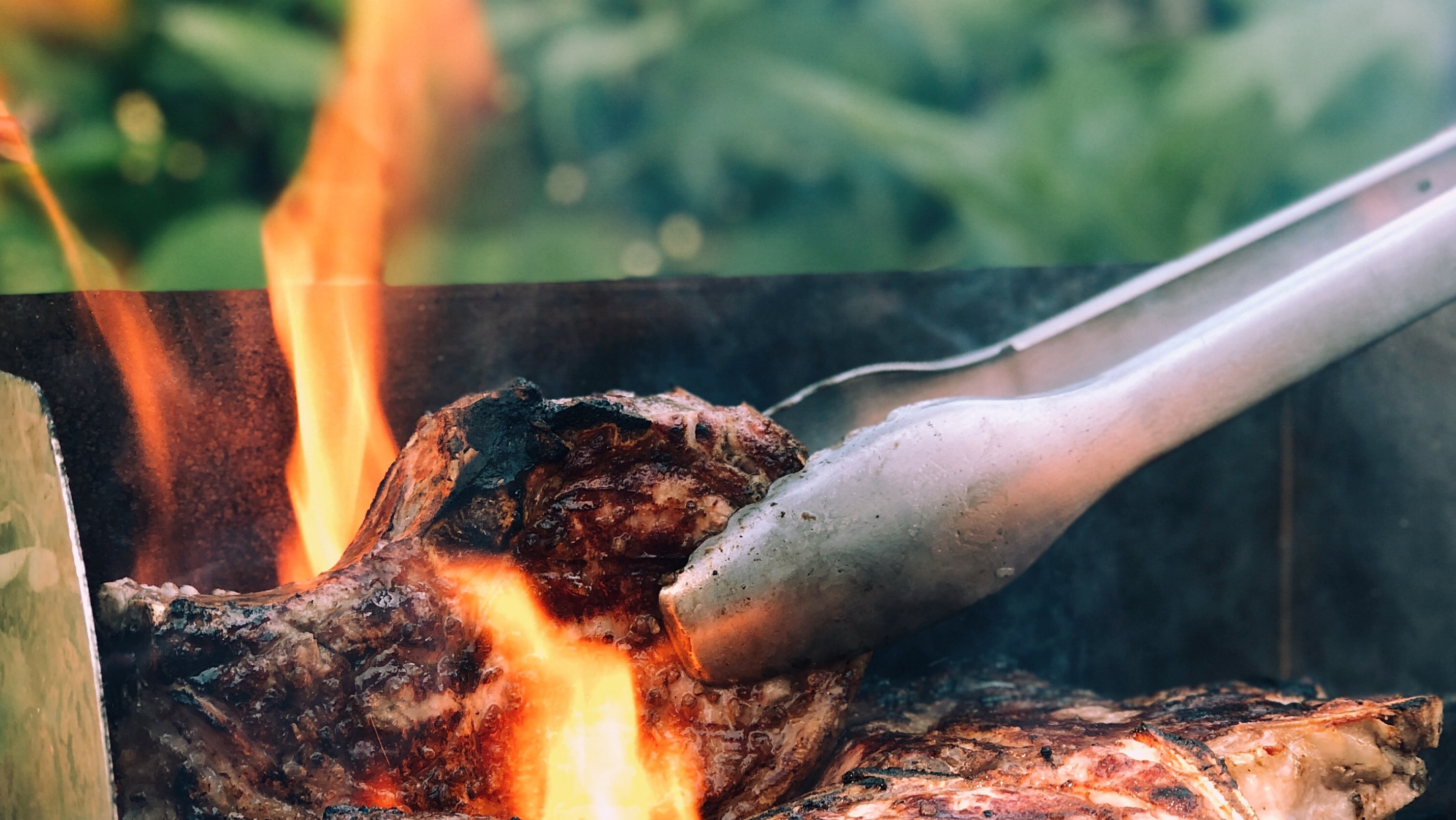Regulatory Milestones
Rigorously tested, conclusively proven, approved and in commercial use for over 25 years
The technology that eventually became known as Rinse & Chill® began decades ago with a science-based vision of enhancing meat safety quality and economic attributes through reimagining what happens just after the point of slaughter. After years of university research, USDA Pilot Programs, foreign operations, extensive testing and government approvals, today Rinse & Chill® is used by leading small and medium sized independent meat establishments with final meat products sold at most major retailers and QSR's. Rinse & Chill® is patented and owned by MPSC, Inc. of Hudson, WI. It won full USDA "No Objection" status in 2004 and is now in use in a growing number of abattoirs, primarily in the U.S. and Australia.
MPSC's Evolution of Success
-
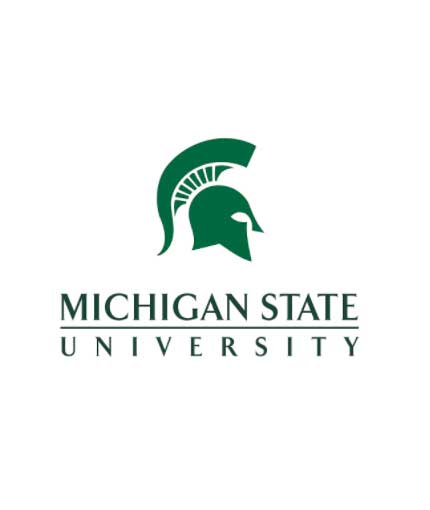
1987-1992
Beginnings
USDA Pilot Programs and foreign operations focused on experimentation with parameters and optimization. Different substrate formulations, application methodologies, and engineering concepts were tested. Research was centered at Michigan State University under Dr. Thayne Dutson.
-
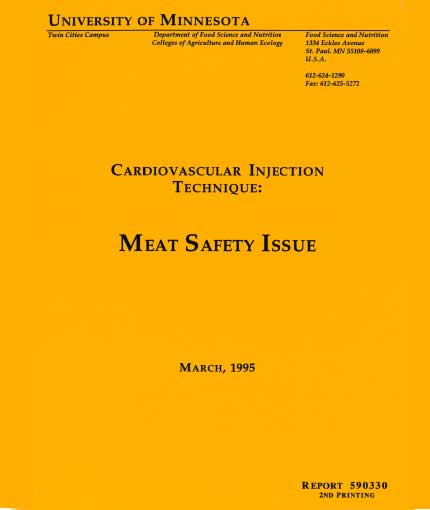
1993-1997
Answering the Regulators’ Questions
Having now optimized the technology and thinking about obtaining Federal Approvals, MPSC began a new phase of research. This included inspection impact and product safety (micro dissemination tests, antimicrobial effects) at Kansas State University under James L. Marsden and at the University of Minnesota.
-
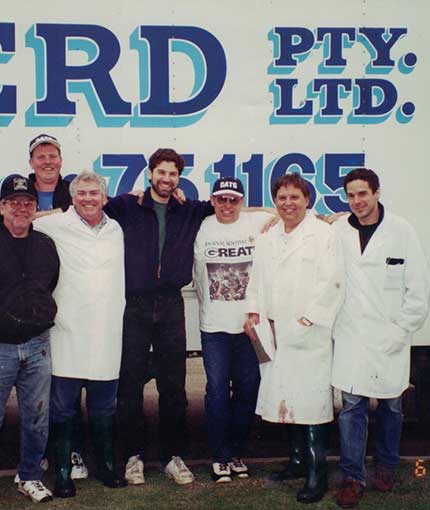
1996-1998
Australia & New Zealand
Australia and New Zealand Food Authority (ANZFA) approvals were obtained, along with approvals by requisite authorities in the states of Victoria, Queensland and New South Wales. First two commercial beef R&C operations in Australia began in the state of Victoria. CSIRO study.
-
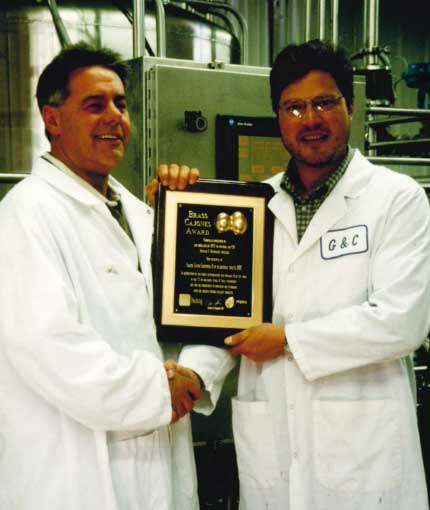
1998-2001
USDA Commercial Trial Approved
USDA approved Commercial Trial for the first US plant located in Colorado. Protocol approved for verification of previously validated data sets utilizing large sample sizes: residues, retained moisture, and microbiological assessments of carcass and organs.
-
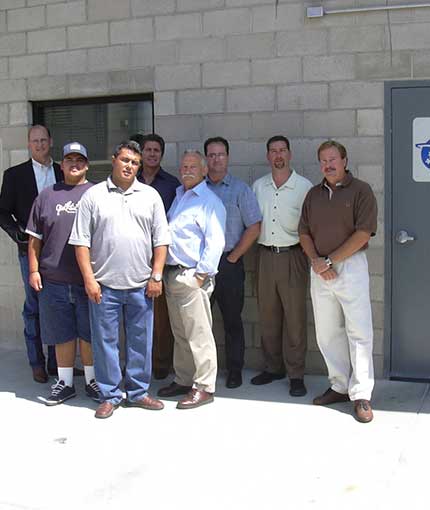
2001-2003
Commercial Trial Extension
USDA approved additional establishments under Commercial Trial of Rinse & Chill®, as well as for “Natural” meats. Both grain-fed and lean beef animals harvested via R&C in TX and CA establishments. Favorable data sets again obtained for lower micro and no retained moisture.
-

2003-2004
AQIS, FSANZ Status
Food Standards Australia and New Zealand (FSANZ) approved Rinse & Chill® technology. AQIS and additional USDA Commercial Implementations began.
-
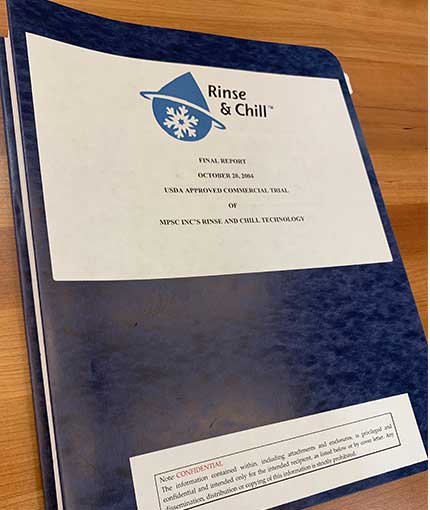
2004
USDA “No Objection” Status Received
MPSC submitted its final report on the Commercial Trial in October of 2004. USDA granted full “No Objection” status sixty days later in December. This allowed MPSC to fully commercialize R&C in beef and bison.
-

2005
AQIS “No Objection” Status Obtained
Australian Quarantine and Inspection Service (AQIS) “No Objection” status is obtained stipulating similar conditions to USDA’s letter of “No Objection”. Market Access Advice obtained for US export from Australia.
-

2006
Canadian and Japanese Approval
After many years of submissions and review, Health Canada Novel Foods, CFIA and Japan “No Objection” statuses are obtained.
-

2008
USDA Offals Labeling Exemption
FSIS determined the processing aid definition is met for substrate ingredients in R&C byproducts. No labeling of these substrates is therefore required for further processed products.
-
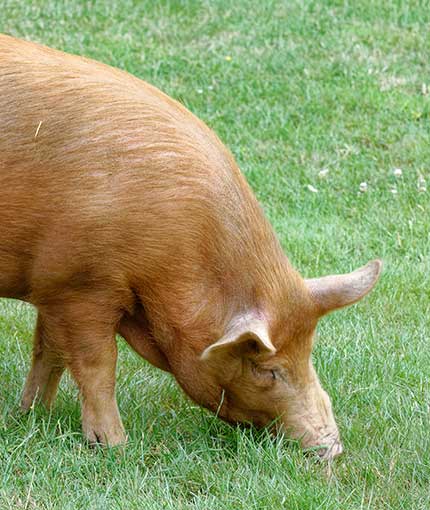
2012
USDA “No Objection” Status - Pork
USDA “No Objection” for pork obtained after initial R&D and data collection.
-

2013
New Zealand Approval, First Commercial Operations
New Zealand Ministry for Primary Industries (MPI) “No Objection” status obtained. First commercial lamb plant implementation of Rinse & Chill® occurred on the South Island.
-
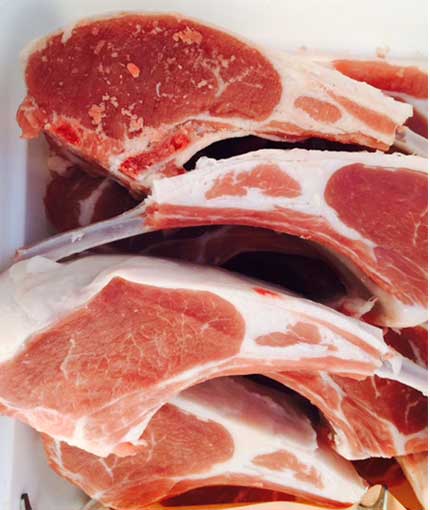
2016
US Lamb Approval
USDA Lamb and Goat “No Objection” status granted by FSIS.
-
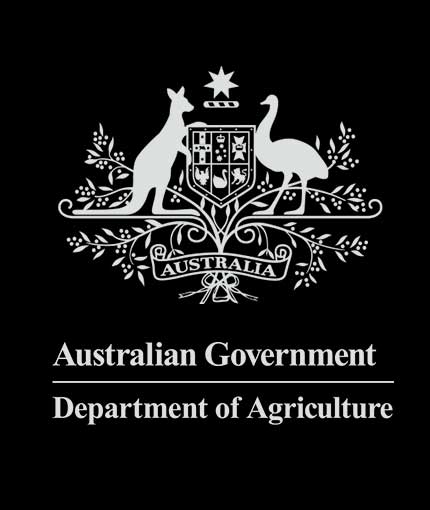
March 2021
Rinse & Chill Meets the Definition of a Processing Aid
Australian Department of Agriculture confirms Rinse & Chill® meets the definition of a Processing Aid. [Food Standards Code- Standard 1.3.3- Processing aids.]
